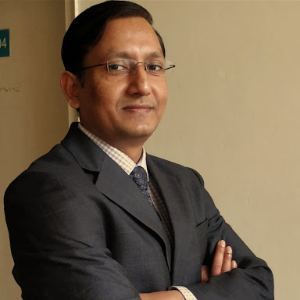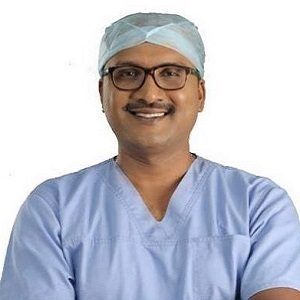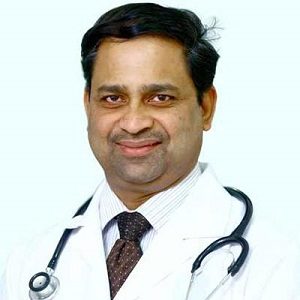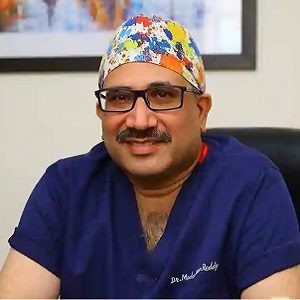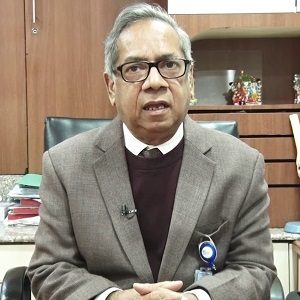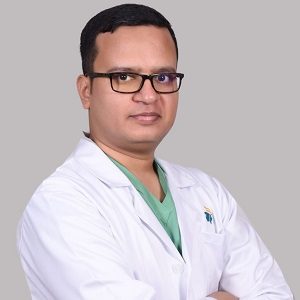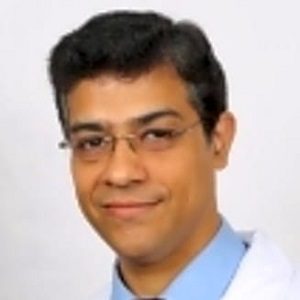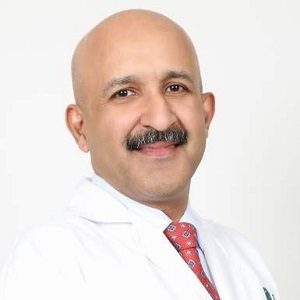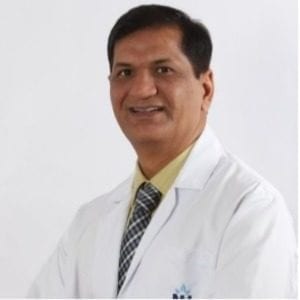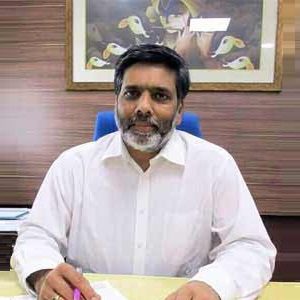Best Doctors in India for Avascular Necrosis Treatment
- Orthopedic & Spine Surgeon, New Delhi, India
- Over 14 years’ experience
Profile Highlights:
- Dr. Om Prakash Gupta is a reputed Spine Surgeon in India.
- He is currently functioning as a Consultant – Orthopedics & Spine at Max Smart Super Speciality Hospital, New Delhi
- He has over 14 years of experience.
- Orthopedic Surgeon, Chennai, India
- Over 21 years’ experience
Profile Highlights:
- Dr. A Navaladi Shankar is a well-known spine surgeon and orthopedist in Chennai with 21+ years of experience.
- He completed an MBBS from Al-Ameen Medical College, MNAMS from the National Board of Education, and a Diploma from Sri Ramachandra Medical College and Research Institute.
- Dr. Shankar holds expertise in Laminectomy, Lower Back Pain and Neck Pain Treatment, Arthritis Management, and Trauma Surgery.
- Orthopaedic Surgeon, Chennai, India
- Over 22 years’ experience
Profile Highlights:
- Dr. Kornad P Kosygan is one of the few Orthopedic surgeons in India with a double FRCS degree.
- He has been successful in the diagnosis and treatment of severe Orthopedic problems throughout his career.
- Dr. Kornad is invited as an exclusive Orthopedics Specialist from over six countries in the Asian and European subcontinent.
- Dr. Kosygan has sought extensive training and exposure in the department of Orthopaedics.
- Orthopaedic Surgeon, Chennai, India
- Over 25 years’ experience
Profile Highlights:
- Dr. Madan Mohan Reddy is one of the most acclaimed Orthopedic Surgeons in India with tons of experience and knowledge that he gained over the course of years.
- He has attended several courses across the world, in countries like Switzerland, Germany, Australia, and Italy.
- Orthopedic Surgeon, New Delhi, India
- Over 42 years’ experience
Profile Highlights:
- As one of the most experienced orthopedic surgeons in Delhi, Dr. Chander Shekhar has been practicing for 42 years. He is associated with Indraprastha Apollo Hospital as a consultant.
- Dr. Chander Shekhar is interested in Knee and Hip joint replacement and revision.
- He honed his expertise by completing a fellowship in shoulder and knee arthroscopy in the United States. Besides replacement & revision surgery, he has expertise in Birmingham Hip Resurfacing, BHR with stem, and Minimally Invasive Surgery.
- Orthopedic Surgeon & Spine Surgeon, New Delhi, India
- Over 18 years’ experience
Profile Highlights:
- Dr. Amit Kumar Agarwal is a Delhi-based orthopedic, joint replacement, and spine surgeon consultant who has been assuring joint and spine health for about 18 years.
- Dr. Agarwal has garnered numerous accolades for his work in treating Joints and Musculoskeletal Disorders, pain management, sports injury, and articular degeneration during his career.
- Orthopedic Surgeon, New Delhi, India
- Over 22 years’ experience
Profile Highlights:
- Dr. Vibhu Bahl is one of the finest Orthopedist and Joint Replacement Surgeon in India. He has experience of over 22 years in this field.
- Dr. Bahl has successfully performed multiple complex and primary total knee and hip replacements over his career. Besides these, he specializes in computer-assisted total knee replacements. Patients seeking Arthroscopy for shoulder dislocation, degeneration, and repair must consult him.
- Dr. Bahl participated as a Faculty in many Arthroscopy conferences.
- He is passionate about research and has a long list of publications in prestigious national and international journals.
- Orthopedist, New Delhi, India
- Over 20 years’ experience
Profile Highlights:
- Dr. Havind Tandon is one of the best Orthopedists in Delhi, having nearly two decades of experience. He practices as a senior consultant at Indraprastha Apollo Hospital.
- Many patients who need a knee replacement, repair, or osteotomy have benefitted from his enthusiasm and skill in the field.
- Dr. Havind Tandon worked with Jhonson & Jhonson as a Facilitator for the National Joint Replacement Program.
- Pain management counseling, Joint Replacement Surgery, Spinal Therapy, reverse shoulder replacement, neuropathy assessment, foot drop, treatment of complex fractures, and Adult Joint Reconstruction are just a few of the vital services provided by Dr. Havind Tandon.
- Dr. Tandon was also recognized for his work in the field of research.
- Orthopedic and Spine Surgeon, Gurugram, India
- Over 25 years’ experience
Profile Highlights:
- With over 25 years of experience, Dr. Rajesh Kumar Verma can be generally considered a boon for people suffering from complex, bone, joint, or spine disorders.
- Currently known as one of India’s leading spine experts in India, Dr. Rajesh Kumar Verma performs as many as 50 surgeries in a month. The types of surgeries he performs include all types of spine surgeries, joint replacements, as well as complex trauma surgeries.
- Orthopedic Surgeon, Chennai, India
- Over 25 years’ experience
Profile Highlights:
- Dr. Krishnamurthy K provides consultation at the Apollo hospitals of Chennai.
- He has also worked as a senior registrar and assistant surgeon earlier and has sound knowledge of his field.
- One can reach Dr. Krishnamurthy K for treatment of fractures, joints, shoulders, knees, hip replacement, etc.
Best Hospitals in India for Avascular Necrosis Treatment
Fortis Hospital, Shalimar Bagh
- City: New Delhi, India
Hospital Highlights:
- Fortis Hospital in Shalimar Bagh is a multi-super specialty hospital that strives to provide world-class patient care by leaving no stone unturned.
- Fortis, Shalimar Bagh, with 262 beds and a 7.34-acre footprint, provides the best level of medical care through its team of doctors, nurses, technicians, and management professionals.
Reliance Hospital, Mumbai
- City: Mumbai, India
Hospital Highlights:
- Reliance Hospital is one of the best super-specialty care hospitals in Navi Mumbai.
- The main purpose of this hospital is to become a trustworthy place for the best health and hope for society. The hospital is well connected to the suburbs of Mumbai and Navi Mumbai.
- The hospital has various specialty departments, viz., Accident & Emergency, Anesthesiology, Dental Services, Dermatology, Diabetology, Dietetics Nutrition, Endocrinology, ENT, Gastroenterology, General Surgery, Gynaecology And Obstetrics, Hepato Pancreato Biliary Surgery, Infectious Disease, Internal Medicine, Interventional Radiology, Laboratory Medicine, Minimal Access Laparoscopic Surgery, Nephrology, Neurosciences, Opthalmology, Orthopaedics, Paediatrics, Pain Management Palliative Care, Physical Medicine Rehabilitation, Plastic And Reconstructive Surgery, Psychiatry, Pulmonary Medicine, Radiology, Rheumatology, Transplant, Urology Andrology, Vascular Surgery
Lilavati Hospital & Research Centre, Mumbai
- City: Mumbai, India
Hospital Highlights:
- Lilavati Hospital & Research Centre is India’s premier multi-speciality tertiary care hospital and has been recognised as a global medical excellence centre.
- Lilavati Hospital & Research Centre has built an unrivalled level of trust with its patients over the years, thanks to a solid foundation that comprises cutting-edge facilities, the best medical competence, research, education, and charity endeavours.
- The hospital is quite proud of the fact that it now serves patients from all kinds of backgrounds, not just from the United States but from all around the world.
- The hospital has a total of 323 beds, one of the largest Intensive Care Units (ICUs), 12 Operation Theatres with modern amenities, over 300 consultants, and almost 1,800 personnel.
Venkateshwar Hospital, Dwarka, New Delhi
- City: New Delhi, India
Hospital Highlights:
- State-of-the-art technology and devoted healthcare professionals have been brought together under one roof at Venkateshwar Hospital to provide genuine medical care. The hospital’s professionals work together as a team to deliver the best possible treatment to their patients, using the most sophisticated equipment and information technology.
- Venkateshwar Hospital’s mission is to attain global excellence in healthcare by employing evidence-based, ethical clinical practices and cutting-edge technology by a team of highly skilled experts.
MGM Healthcare, Chennai
- City: Chennai, India
Hospital Highlights:
- Located in Chennai, India, MGM Healthcare is a top multispecialty hospital that provides all medical services under one roof.
- Since its founding in 2019, MGM Healthcare has quickly become a leading national referral centre, creating several innovative flagship initiatives.
- MGM Healthcare combines next-generation medical and digital technologies to provide better patient results.
- With 12 centres of excellence, more than 400 inpatient beds, 100 intensive care unit beds, and 24/7 emergency care, MGM Healthcare leaves no chance in redefining the patient experience in Chennai.
- MGM Healthcare boasts 250+ expert doctors across 30+ departments, including Cardiology, Pulmonology, Neurology, Obstetrics & Gynaecology, and more.
- They house 12 specialized Centres of Excellence, including Neurosciences, Orthopaedics, and Multi-Organ Transplantation.
- Their team of doctors, nurses, and paramedics works together to give every patient individualized treatment.
AVASCULAR NECROSIS
Avascular Necrosis is the death of bone tissue which is caused by a loss of blood supply. Also termed osteonecrosis, it causes tiny breaks in the bone and eventually leads to the bone collapsing.
Blood flow to a section of a bone can be interrupted by a broken bone or dislocated joint. This condition is also associated with long-term use of high-dose steroid medications as well as excessive intake of alcohol.
Anyone can be affected by avascular necrosis, though the condition is more common among people between the ages of 30 and 50.
Symptoms
In the early stages of avascular necrosis, most people generally show no symptoms. However, as the condition gets worse, your affected joint is likely going to hurt when weight is put on it. Eventually, you might start experiencing the pain even while lying down.
Pain may be mild or severe and generally, it develops gradually. Pain which is associated with avascular necrosis of the hip can occur on the groin, thigh, or buttock. Other than the hip, the shoulder, knee, hand, and foot may also be affected.
Sometimes, people may also develop avascular necrosis on both sides, i.e. bilaterally.
If you think you have a dislocated joint or a broken bone, or if you experience persistent pain in any joint, it is important to seek immediate medical treatment.
Causes & risk factors
Certain factors that can lead to avascular necrosis or make it more likely include the following:
- Alcohol- If you take several drinks in a day, it can cause fat deposits to form in your blood. This can lower the blood supply to your bones.
- Medical treatments- Radiation therapy for cancer can weaken your bones. Other conditions linked to avascular necrosis include organ transplants, such as kidney transplants.
- Bisphosphonates- These medications which can help you boost bone density might also sometimes cause osteonecrosis of the jaw. This is more likely if you are taking them for multiple myeloma or metastatic breast cancer.
- Trauma- If you break or dislocate a hip, it might also cause damage to nearby blood vessels and cut off the blood supply to your bones. Avascular necrosis is known to affect 20% or more of people who dislocate a hip.
- Inflammation, blood clots, and damage to your arteries- All of these can block the blood flow to your bones.
- Steroid drugs- Long-term use of these inflammation-fighting drugs, either by mouth or in a vein, can lead to 35% of all cases of nontraumatic avascular necrosis. Doctors are unsure why, but the longtime use of certain medications can lead to avascular necrosis. It could be that the medications raise the fat levels in the blood, which lowers the blood flow.
Other conditions which are associated with nontraumatic avascular necrosis include:
- Decompression sickness, which causes gas bubbles in your blood
- Diabetes
- HIV
- Pancreatitis, inflammation of the pancreas
- Autoimmune diseases such as lupus
- Gaucher disease, in which a fatty substance collects in the organs
- Sickle cell disease
Diagnosis
During a physical exam, a doctor is likely going to press around your joints, and check for tenderness. Your doctor might also need to move the joints through different positions, to see, if your range of motion has been reduced.
Your doctor can also recommend certain imaging tests, to help pinpoint the source of pain.
Some of the options include:
X-rays
MRI and CT scan
Bone Scan
Treatment
Treatment for avascular necrosis aims to improve the joint, stop the bone damage, and ease any pain. The best treatment is going to depend on a number of factors, such as your age, the stage of the disease, the cause, as well as the location and amount of bone damage.
If you catch the ailment early, doctors generally recommend medications to relieve pain. Medications can include blood thinners, cholesterol drugs, etc.
If your avascular necrosis is fairly advanced, your doctor is likely going to recommend any of the following:
Core decompression

Bone transplant (graft)
Bone reshaping (osteotomy)
Joint replacement
Electrical stimulation
Prevention
To prevent avascular necrosis, you can take the following steps:
Cut back on alcohol- Heavy drinking is a leading risk factor for avascular necrosis.
Use steroids carefully- Taking steroids over and over again can worsen bone damage.
Keep your cholesterol in check- Small bits of fat are the most common thing that is known to block the blood supply to your bones.
Don’t smoke- Smoking boosts your risk of avascular necrosis.

